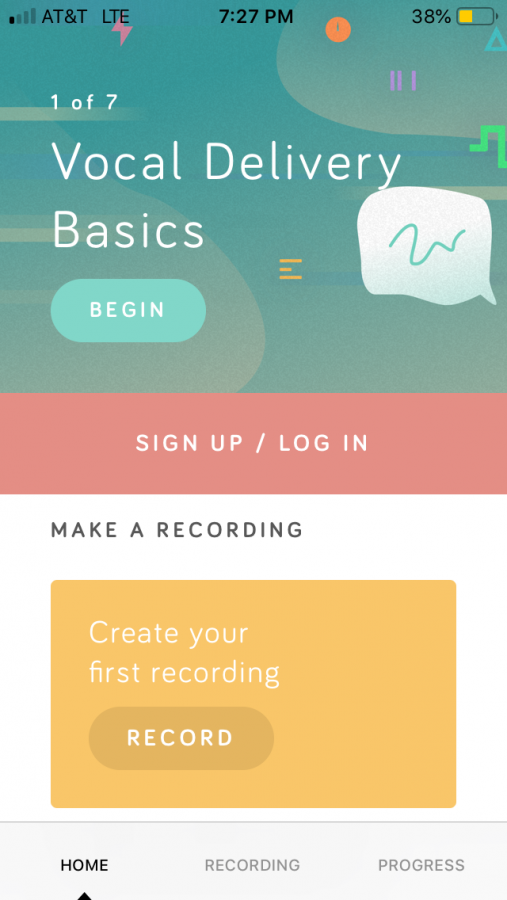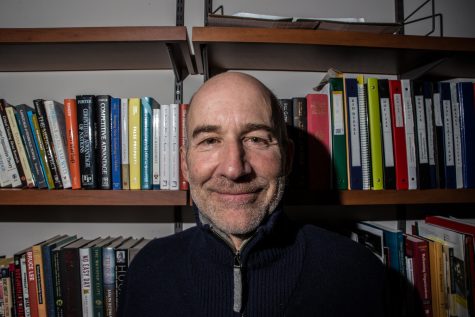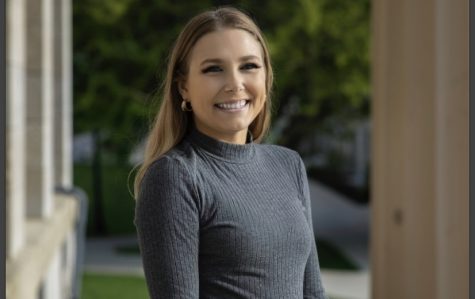Two UI friends launch app that helps improve public-speaking skills
A company called Speeko, composed of a team including two UI entrepreneurs, recently launched an app that serves as a customized public-speaking coach.
November 15, 2018
Nico Aguilar was a University of Iowa undergraduate when he suffered an anxiety attack while giving a speech in a rhetoric class.
His experience later prompted him to develop Speeko, a voice-analytics company that serves as a speaking coach for users who want to improve their vocal delivery. Aguilar and his team launched the app in October.
“It’s taken me years to overcome that [fear], and that journey has changed my life and opened countless doors for me,” Aguilar said. “With Speeko, we’re trying to bring that same breakthrough to everyone through technology.”
Aguilar partnered with classmate and best friend Anthony Pham to develop Speeko over the course of two years. Today the company has five members: cofounders Aguilar and Pham, Will Field-Thompson, Chief Data Officer Cameron Faeber, and Chief Operating Officer Nicole Cook.
Together, the team recently worked to be one of 10 companies selected by Techstars, a global startup accelerator that provides teams with workspace and access to a mentor network for a three-month program. More than 2,200 companies applied.
Pham said Speeko seeks to aid public speakers by providing a highly accessible tool that encourages users to practice.
“The No. 1 thing experts say you should do to overcome this fear is practice, and that’s a big barrier for people, especially students,” Pham said. “We want to lower that barrier. Everyone is comfortable with their phones, so our goal is build a tool that really gets them excited to take that first step.”
RELATED: Student-run startup gives students business resources
The app works by first listening to the user speak. Field-Thompson said Speeko then takes the recording and shows the user how they scored based on six different metrics. With that, the app suggests vocal exercises similar to what an average speech coach would use.
“We look at how you speak, your word choice, your energy level, and give you guidance, and feedback, and critical self-awareness to help you improve,” Aguilar said.
Bree Neyland, the UI Speaking Center director and rhetoric lecturer, said the biggest challenge students face when it comes to public speaking is overcoming fear.
Neyland said the Speaking Center often encourages students to record themselves and note what they are doing well to improve their public-speaking skills.
“That way, they can keep doing those things and feel that they have some mastery already,” she said. “It makes it much less intimidating.”
Aguilar said Speeko breaks down a user’s plan to improve by providing customized coaching lessons. The app provides a visual of the user’s recording to show how long they stay within target levels of the six individual metrics such as Intonation and Pace. The app also includes coaching on calming nerves, such as breathing exercises.
“More than 70 percent of people want to improve their communication, but only a slight few ever do anything about it,” Pham said. “It’s because they don’t know where to take the first step. We want Speeko to be that first step. We want to be there wherever communication is happening.”





















